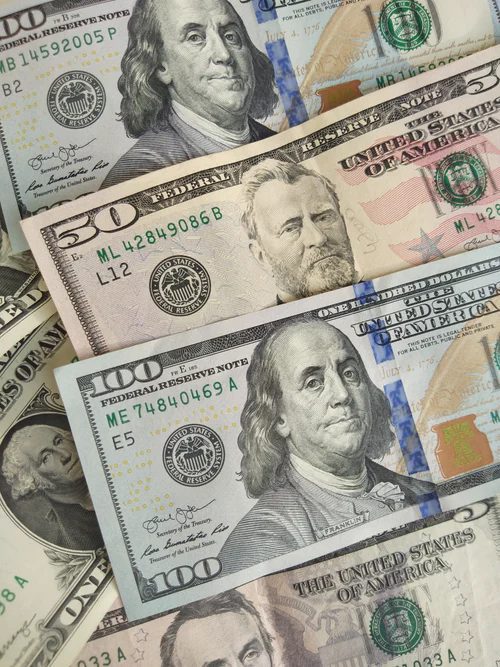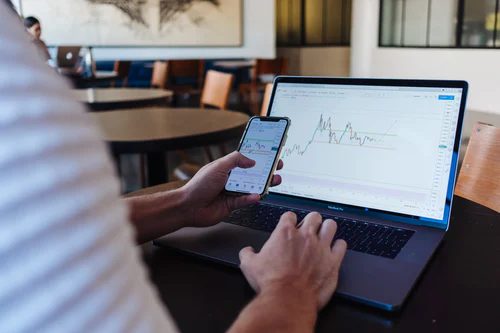The forex market is often known for its volatility. While using foreign exchange platforms might make doing your analysis easier, you’re still the one doing the thinking. So, what elements can a trader look out for to help them succeed with forex?
The Political World
When a government willingly makes efforts to enhance the living standards of its citizens, the economy flourishes. As a result, the first symptom of an investor-friendly country may be a stable administration. It implies the economy has fewer hurdles and a better chance of growing.
How it relates: A trader may purchase a country’s currency with stable political conditions.
In the foreign exchange: Brexit news caused the pound to fall in value compared to the US dollar.
Inflation Rate
There are no surprises here. If one country’s inflation rate is lower than another, its currency is predicted to rise in value compared to a currency with a greater inflation rate.
How it relates: An investor would aim to buy a currency with a lower inflation rate.
In the foreign exchange: When shown on a graph, as Zimbabwe’s inflation grew, its currency fell sharply. As a result, the Zimbabwean dollar was not a desirable currency for forex traders, as it was incredibly unpredictable and volatile.
Also Read: How to use technical analysis when trading forex
Interest rate
If the central bank determines that inflation is out of control, it intervenes to control it by raising interest rates and therefore reining in the amount of money in the market.
An increase in interest rates is a favorable indicator for investors since the currency rate rises when interest rates rise.
How it relates: As an investor’s rate of return rises, they will gravitate toward economies with higher interest rates. This raises demand for the currency, causing the exchange rate to rise.
In the foreign exchange: The RBI has raised interest rates to prevent the rupee from falling further.

The National Debt
Would you lend money to someone who is in debt? You likely wouldn’t do it.
How it relates: The more extensive a country’s debt, the less likely it is to attract foreign money, reducing its currency rate. An investor can examine the government debt trend over time to evaluate if investing in the country’s currency is a wise option.
In the foreign exchange: The government debt, which has not diminished due to the rise in oil prices, is one of the causes of the Indian rupee’s weakness.
Trade Conditions (Export Prices To Import Prices Ratio)
The ratio of export prices to import prices is known as the terms of trade. If a country’s terms of commerce are favorable, i.e., it has more exports than imports, the currency will always appreciate and be in demand. This indicates that its currency worth will be larger than another country with cheaper trading terms.
How it relates: An investor may choose to invest in a nation whose exports exceed imports.
In the foreign exchange: China’s trade terms are generally favorable, so it is an appealing source for forex trading.
Speculation
Speculation isn’t a quantifiable element. If there is anticipation that the currency rate will rise, other investors will demand more of it, and the currency rate will increase even more. The same is true for the opposing party.
How it relates: The idea here is to recognize that everyone is jumping on the bandwagon and getting out of it before the effect wears off.
In the foreign exchange: With low loan rates in the US housing market in 2005-06, there was optimism that home values would grow, increasing the dollar value.

The Capital Market
The trajectory of the financial markets might give you an impression of how the economy is going. A prolonged drop in the stock market typically implies poor investor confidence and can thus be beneficial in projecting the currency rate relative to the other countries.
How it relates: An upswing in the capital markets indicates that the currency rate will rise.
In the foreign exchange: Since 2005, as China’s capital market has surged, the USD/CNY currency pair has fallen, indicating that the yuan has strengthened.
Data on Employment
Every country publishes employment figures regularly. This is another indicator of the economy’s strength. A high unemployment rate indicates that the economy is not increasing in proportion to the population or that the economy has stalled.
How it relates: A high unemployment rate may cause the currency value to depreciate, lowering its forex rate.
In the foreign exchange: Following the announcement of positive US non-farm payroll data in September, the US Dollar index (DXY) jumped from 94.95 to 95.35.
Economic Strategy
The monetary and fiscal policies will tell you if it is hospitable to investors or not. As a result, if the government has plans and incentives to attract foreign money, investors may flock to this nation, increasing demand for the specific currency.
In the foreign exchange: Following the presentation of the 2018 budget, the local market, BSE and NSE, experienced a negative trend, with an anticipated loss of 4.6 lakh crore in Indian equities.
When it comes to FX trade, the rupee dropped 44 paise compared to the US Dollar.
Forex trading is complex and unpredictable, so don’t expect a list to be able to contain all the reasons that the markets could be volatile. It’s practice and putting the time in to understand the markets yourself to determine what is influencing the market on a specific day.

 How to Generate your E-Shram Card? Apply Online
How to Generate your E-Shram Card? Apply Online The Impact of Advanced SEO Techniques on Online Visibility
The Impact of Advanced SEO Techniques on Online Visibility Emirates Multi-City Flights Are Cheaper or Not?
Emirates Multi-City Flights Are Cheaper or Not? What Makes FamiSafe A Perfect Choice For Your Child Safety
What Makes FamiSafe A Perfect Choice For Your Child Safety How Technology is Changing Long-Distance Moving
How Technology is Changing Long-Distance Moving The Role of Certifiers in Commercial Development
The Role of Certifiers in Commercial Development Fun88 รีวิวเว็บคาสิโนออนไลน์ ใบอนุญาต ฟีเจอร์เด่น พร้อมแชร์ทางเข้า Fun88แท้ อัพเดทใหม่
Fun88 รีวิวเว็บคาสิโนออนไลน์ ใบอนุญาต ฟีเจอร์เด่น พร้อมแชร์ทางเข้า Fun88แท้ อัพเดทใหม่ Everything You Need To Know About The Champions League Final
Everything You Need To Know About The Champions League Final